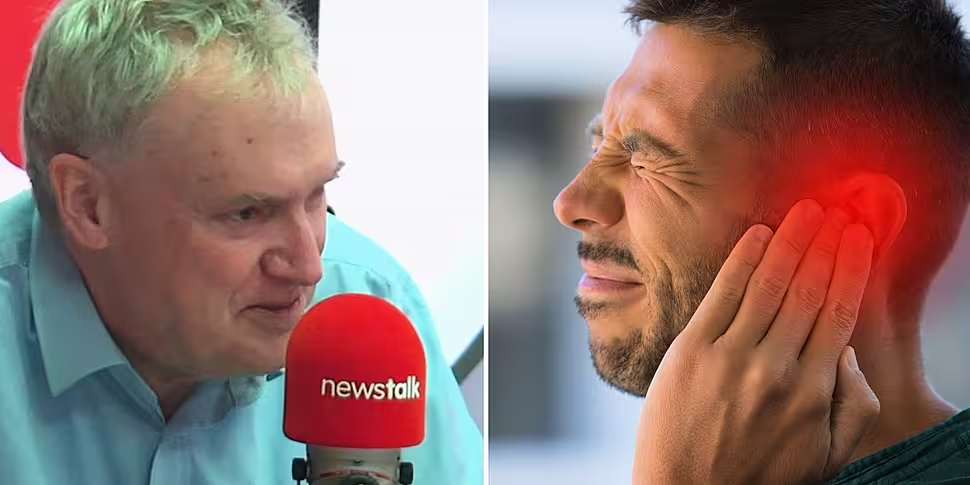Tinnitus is an incurable condition that causes a person to constantly hear a noise frequency in their ears.
It can be caused by antibiotics, loud noises and ear infections.
It can manifest as different sounds - including ringing and hissing noises, as well as sounds similar to white noise.
Professor Luke O’Neill told the Show Me the Science podcast that there is currently no cure for tinnitus.
“The numbers of people affected overall is at least 15%, although it's probably more than that,” he said.
“The ones who are severely affected is around 2% – So one in fifty of us will have severe tinnitus that will cause us significant problems.”
What are the causes?
The number one cause is long-term exposure to loud noise – but it can also be caused by ear infections, bacteria or viruses, jaw problems, antibiotics and certain other medications.
The condition often develops as a pre-cursor to hearing loss.
“Hearing loss is a big factor here,” said Prof O’Neill.
“The major factor that causes hearing loss is the cochlea.
“That gets damaged, and that can cause hearing loss.
“Then some of these drugs – there's over 260 medications, amazingly – [that] have been shown to have some effect on tinnitus.
“So, drugs seem to be able to do things to our ears that we do that we wouldn't quite expect.”
How to manage it
Prof O’Neill said that unfortunately, there is no cure for the condition at the moment.
“You can train yourself – kind of – to get used to it,” he said.
“A cognitive behavioural support can be useful there to help people come to terms with this.
“A second thing is sound therapy – and some people swear by this.”
Therapies
Sound therapy involves playing repetitive sounds like cricket noises or the sound of waves to drown out the tinnitus. Prof O’Neill said this can be done with phone apps.
“There’s a thing called acceptance and commitment therapy where people just begin to get used to it and accept it,” he said.
“There’s some evidence that certain benzodiazepines – even though they can cause it – can be beneficial.
“Melatonin has been tried [as a treatment], drugs targeting histidine has been tried.
“Nothing really works. The truth is, these [treatments] have been tested and they may work in a small number of people, but no real success.”
Prof O’Neill advised to go straight to a GP or audiologist if you believe you are suffering with tinnitus.
Listen back here:









